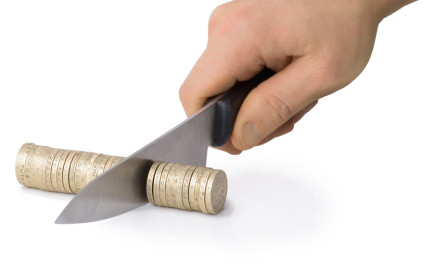
Planning & budgeting
Saving & investing
KiwiSaver
Tackling debt
Protecting wealth
Retirement
Home buying
Life events
Setting goals
Money tracking
Plan your spending with a budget
Getting advice
Studying
Get better with money
What pūtea beliefs do you have?
How to build up your emergency savings to cover unexpected costs
How to save your money
How to start investing
Find a financial adviser to help you invest
Your investment profile
Compound interest
Net worth
Types of investments
Term deposits
Bonds
Investment funds
Shares
Property investment
How KiwiSaver works and why it's worth joining
How to pick the right KiwiSaver fund
Make the most of KiwiSaver and grow your balance
How KiwiSaver can help you get into your first home
Applying for a KiwiSaver hardship withdrawal
How to use buy now pay later
What you really need to know before you use credit
How to get out of debt quickly
Credit reports
Know your rights
Pros and cons of debt consolidation
Credit cards
Car loans
Personal loans
Hire purchase
Student loans
Getting a fine
What happens if I start to struggle with moni?
How to build up your emergency savings to cover unexpected costs
Cryptocurrency
How to protect yourself from fraud and being scammed
About insurance
Insurance types
Insuring ourselves
Wills
Enduring powers of attorney
Family trusts
Insuring our homes
Losing a partner
Redundancy
Serious diagnosis
How to cope with the aftermath of fraud
Separation
About NZ Super – how much is it?
When you’re thinking of living in a retirement village
How to plan, save and invest for retirement
Manage your money in retirement
Find housing options in retirement
Four approaches to spending in retirement
Planning & budgeting
Saving & investing
How to build up your emergency savings to cover unexpected costs
How to save your money
How to start investing
Find a financial adviser to help you invest
Your investment profile
Compound interest
Net worth
Types of investments
Term deposits
Bonds
Investment funds
Shares
Property investment
View all
KiwiSaver
Tackling debt
How to use buy now pay later
What you really need to know before you use credit
How to get out of debt quickly
Credit reports
Know your rights
Pros and cons of debt consolidation
Credit cards
Car loans
Personal loans
Hire purchase
Student loans
Getting a fine
What happens if I start to struggle with moni?
View all
Protecting wealth
How to build up your emergency savings to cover unexpected costs
Cryptocurrency
How to protect yourself from fraud and being scammed
About insurance
Insurance types
Insuring ourselves
Wills
Enduring powers of attorney
Family trusts
Insuring our homes
Losing a partner
Redundancy
Serious diagnosis
How to cope with the aftermath of fraud
Separation
View all
Retirement
Home buying
9 March 2015
Reading time: 2 minutes
Posted by Tom Hartmann,
0 comments

Surprise – you’re an investor! Perhaps you knew that.
With KiwiSaver, savers have become budding capitalists, putting in their hard-earned capital and taking a certain amount of risk, with the aim of earning future returns. They just may not realise it.
You may know you’re putting money in, and that your employer and the government are contributing. But you may not know exactly how much risk is involved – perhaps too little if you are 20, or too much if you are 60. And what exactly do you get in return for that risk?
There are the costs of paying a fund manager to take care of your money and taxes to pay along the way. Not to mention inflation, which eats away at your buying power over the years.
Let’s take a look at how “the sausage gets made”, as they say. Someone earning $50,000 who invests for 30 years in a KiwiSaver growth fund would typically end up with a nest egg made up of:
Subtotal: A whopping $636,000!
But here’s how it gets paid:
End result: A much more modest $214,000.
Obviously, some things that influence your end results are not under your control. I haven’t figured out a way to change inflation yet, and taxes are one of those sure things in life.
But how about the fees we pay for fund managers? There you have some options, since you can pick the fund that works best for you. In the KiwiSaver fund finder you can compare your current fund’s fees with an average to see how much you’re paying. (You can also gauge the right level of risk for your stage in life.)
And for how much you might pay over your entire KiwiSaver experience, you can use this KiwiSaver fees calculator to see how those tiny percentage points can change your results by tens of thousands of dollars.
Investment returns don’t all end up in your pocket, so it’s worth making a call on how much you’re willing to pay for them.
Use verification code from your authenticator app. How to use authenticator apps.
Code is invalid. Please try again
Don't have an account? Sign up
Or log in with our social media platforms


A free account gives you your very own space where you can save your tools and track your progress as you get ahead.
Or sign up using Google:



Comments (0)
Comments
No one has commented on this page yet.
RSS feed for comments on this page | RSS feed for all comments